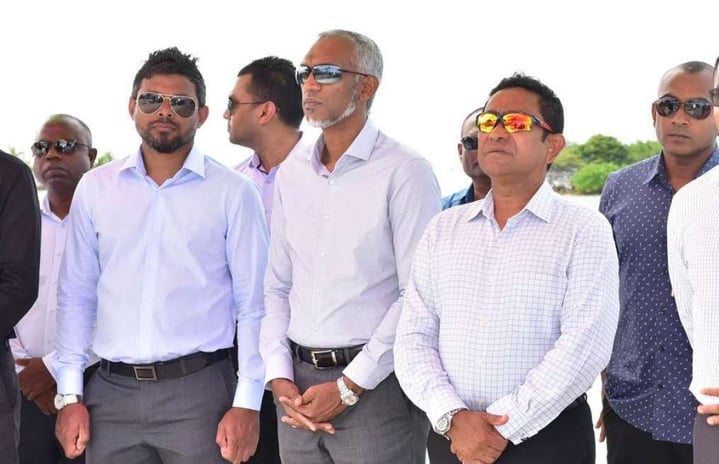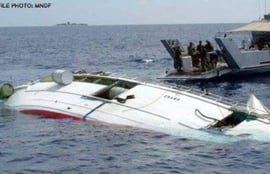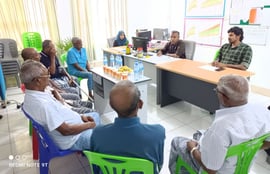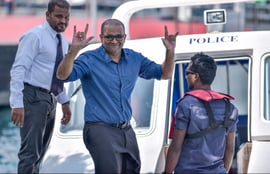The recent, and almost abrupt feud between President Dr. Mohamed Muizzu and former President Abdulla Yameen did not begin at the commencement of the new government. Nor did it begin regarding the deportation efforts of Indian soldiers from the Maldives.
In fact, Yameen had expressed his frustration towards the current Maldivian head of state even on the day he was transferred home less than 24 hours after President Muizzu took oath of office.
“President Yameen did not even look at either me or President Dr. Muizzu that day [on his transfer to house arrest], he maintained distance. But during the initial house arrest transfer, he came and hugged me. He was friendly, but this time, even on the first day, he showed frustration,” The Chairperson of People’s National Congress (PNC), and previously one of the closest allies of Yameen, Abdul Raheem Abdulla said.
It is believed that the rift between Yameen and Muizzu was created the day when the latter had secured his presidential election ticket through PNC, which at the time, was a contingency plan of the Progressive Party of Maldives (PPM) and PNC coalition in case Yameen could not contest in the election.
Things began to intensify when Muizzu garnered the support of the Progressive Coalition senate’s majority.
The final nail in the coffin for the coalition’s apparent split was when Yameen’s pleas to boycott the presidential election by PPM/PNC was rejected by the senate in favor of fielding their contingency plan; Dr. Muizzu as the presidential candidate.
With no option left owing to his prevailing criminal conviction and jail sentence, Yameen was eventually compelled to concede with the coalition senate’s decision and show his approval to Dr. Muizzu, which he did through his wife, Fathimath Ibrahim. Yameen’s approval had come on the same date that Muizzu submitted his candidacy to the Elections Commission (EC).
Though a temporary respite was seen from the brewing tensions during the celebrations of the victory of Dr. Muizzu, the events that transpired next made evident the resentment the former President and his running mate Dr. Mohamed Jameel Ahmed harbored due to their election snub.
The next course of action by Dr. Jameel and his companions after President Muizzu was elected for presidency is further proof of their intentions towards the newly elected president.
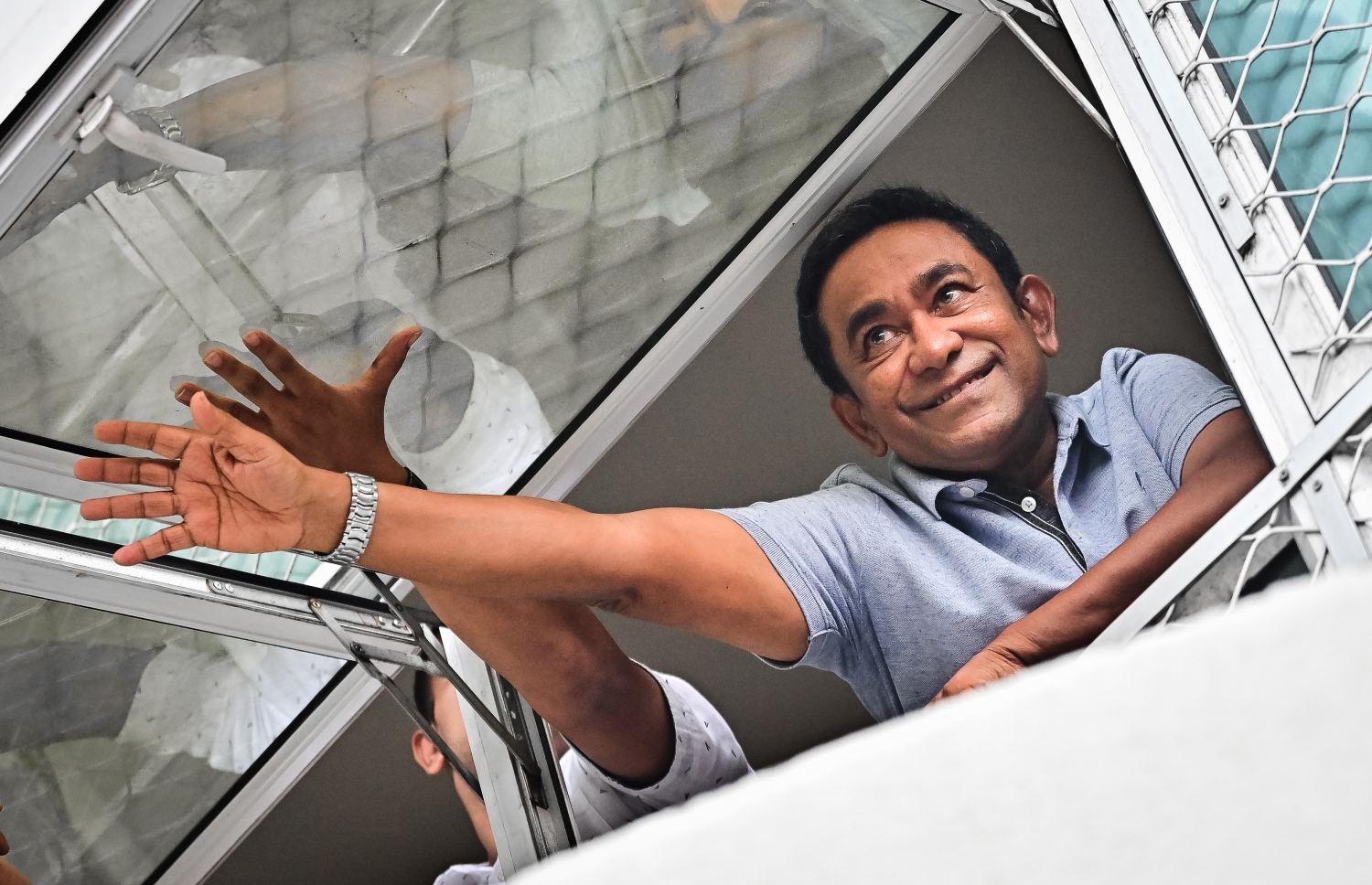
Following the run-off elections on September 30, and amid ongoing vote counting and disclosure of preliminary results by the media, Jameel and his allies had already begun cautioning the public that they needed to be vigilant about the incoming government. The air of dissidence had begun even before the new government formally assumed power.
Even on the rare occasions where Yameen and Muizzu met and conversed, the distaste of the growing feud was becoming more evident.
Dr. Jameel, who spoke in a program on Channel 13, said that Yameen had wished to participate in the celebrations of Dr. Muizzu after he won the presidential election. As er Jameel, Yameen had even requested Dr. Muizzu to postpone the celebratory event until he was fully released.
Jameel said that had Muizzu wished, the then government would have facilitated Yameen’s participation in the celebratory event despite his criminal sentence. However, while such a request was not made, Muizzu did not even express his gratitude to Yameen in his celebrations according to Jameel.
Dr. Jameel, who had been the former Vice President during Yameen’s presidency, was later removed from his position. After his dismissal as the VP, Jameel had gone on a lengthy tirade against Yameen and was a key figure behind Maldivian Democratic Party’s (MDP) political activities to dethrone Yameen in 2018.
With a complete change in stance, Jameel now leads the efforts by Yameen in creating the new political party named People’s National Front (PNF) besides acting as his lead advocate and primary public relations focal point.
Speaking about the apparent disregard by Dr. Muizzu in permitting Yameen’s attendance in his election victory celebration event, Jameel said, “Of course we hoped that they would continue to honor this friendship and long-standing ties. President Yameen deserves as much. He should have gotten his due credit and thanks during the said celebrations. But we did not hear anything of this regard, and that immediately emotionally impacted us deeply,” Jameel said.
Dr. Muizzu’s side of the same story differs, and one of his close associates commented that the celebrations had already been past due which was why the then president-elect chose to hold the event before its opportune hour expired.
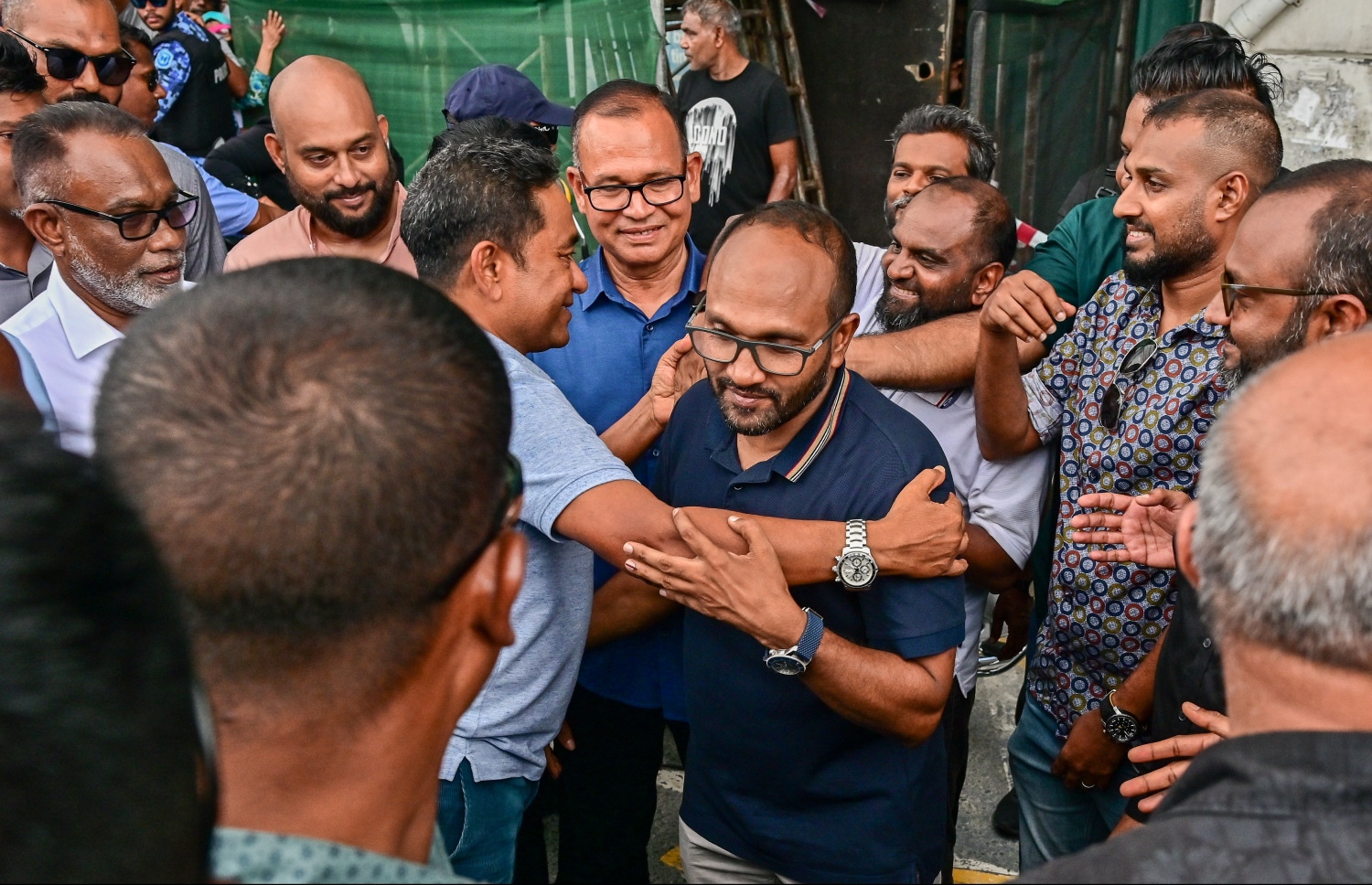
“Even back then, the celebrations were postponed due to rain and bad weather conditions. That is why the celebrations were held at the Social Center,” the aide speaking on behalf of Dr. Muizzu said.
Besides Muizzu’s decision to proceed with the celebrations against Yameen’s requests, the former President had new gripe against the then president-elect over some of his statements at the event.
In his speech, Dr. Muizzu expressed he did not wish for the public to come out on the streets to protest for the release of Yameen.
“I request against [protests] and allow me the chance to handle this appropriately. The country would not achieve peace if you all move ahead in a different path after bestowing this responsibility upon me,” Muizzu said.
A source close to what transpired next said that Muizzu received a call from Yameen directly after his celebratory speech. But the then president-elect chose against answering the call at the time, considering the former president’s character.
After the event, the leadership of the PPM/PNC coalition gathered at Maafannu Dhimyaath, Dr. Muizzu’s residence, where the members discussed in great length on how to communicate with Yameen. Several of the members in the meeting suggested Dr. Muizzu to contact the former president after he had calmed down, which was why the president chose to ignore Yameen’s “Call Me Back” messages.
“Things got heated up that night because Dr. Muizzu appealed to the public to not resort to protests and gatherings for Yameen’s release, but rather to give him the chance to address the issue properly. Several of Dr. Muizzu’s close allies had believed the president’s statements would have rattled Yameen, and as such advised him to wait until he [Yameen] calmed down,” a close associate of Dr. Muizzu said.
After Muizzu did not return the call and based on what he said to the supporters during the celebrations, Yameen gathered his supporters in front of his residence the following evening. In his speech, Yameen expressed his frustrations and displeasure over the recent events.
In response to Dr. Muizzu's appeal to the supporters, Yameen asserted that the coalition leaders and members should have the tenacity to come out on the streets for his sake.
“They must have the courage to come out to the streets. They shouldn’t be making tall statements only after securing top positions, they should show what they are made of before all that,” Yameen said.
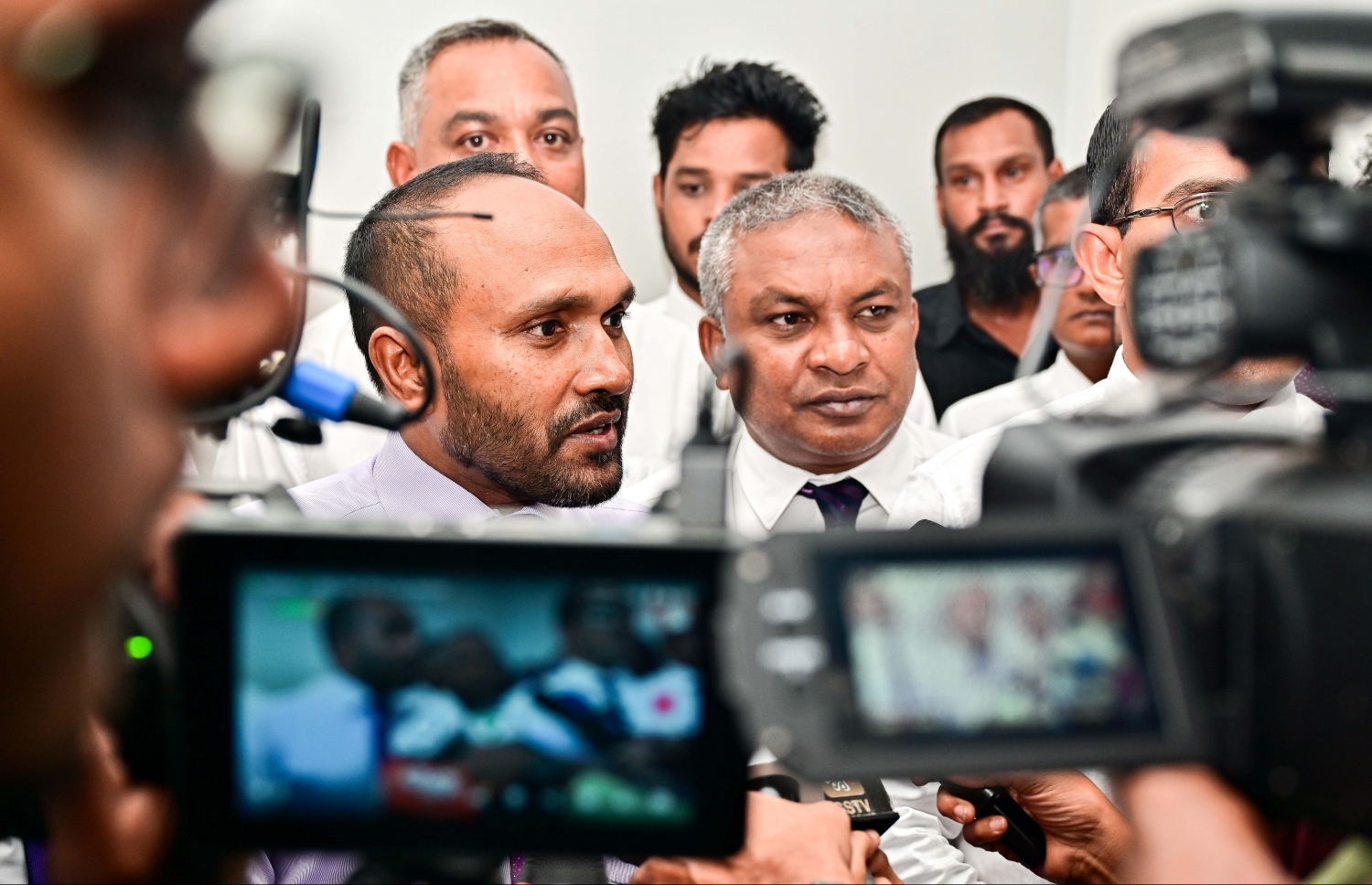
After this, President Muizzu refrained from contacting Yameen and did not reply to the former President’s texts. The communication between the two had been severed at this point.
Despite this, Yameen had engaged in discussions with several members of the PPM/PNC leadership until mid-November.
It was also reported that a delegation of five members from the coalition met with Yameen to discuss about the parliamentary election. Since President Muizzu was out of town, he appointed Vice President Hussain Mohamed Latheef to attend the meeting on his behalf.
“This happened just a few days back, it wasn’t too long back. So, the claims made by Yameen that we did not discuss it with him are false,” a close aide of Muizzu said.
It has also been reported that Yameen had a list of names for consideration to ministerial positions in Dr. Muizzu’s cabinet, which he wished to discuss with President Muizzu. However, given the circumstances that later transpired he did not get the opportunity for it.
Jameel, who spoke about the new government’s cabinet, criticized its members stating that a close inspection into the state’s political and ministerial positions showed that they were now filled by completely unfamiliar faces to the coalition. He also noted that while the new government is making prompt appointments to key state positions, Yameen remains at home, ignored, and rendered irrelevant.
“Why didn’t they seek his [Yameen’s] counsel. Before this, they would wait for his approval even on trivial matters such as confirming a logo,” Jameel remarked.
Since Dr. Muizzu was appointing people to government’s top positions without the counsel of Yameen, the former president decided to take matters in to his own hand.
Yameen then began efforts to gain control of PPM through a committee which he founded with members who have been likewise ignored by the coalition partner; PNC. However, these efforts were foiled by the leadership of PPM/PNC.
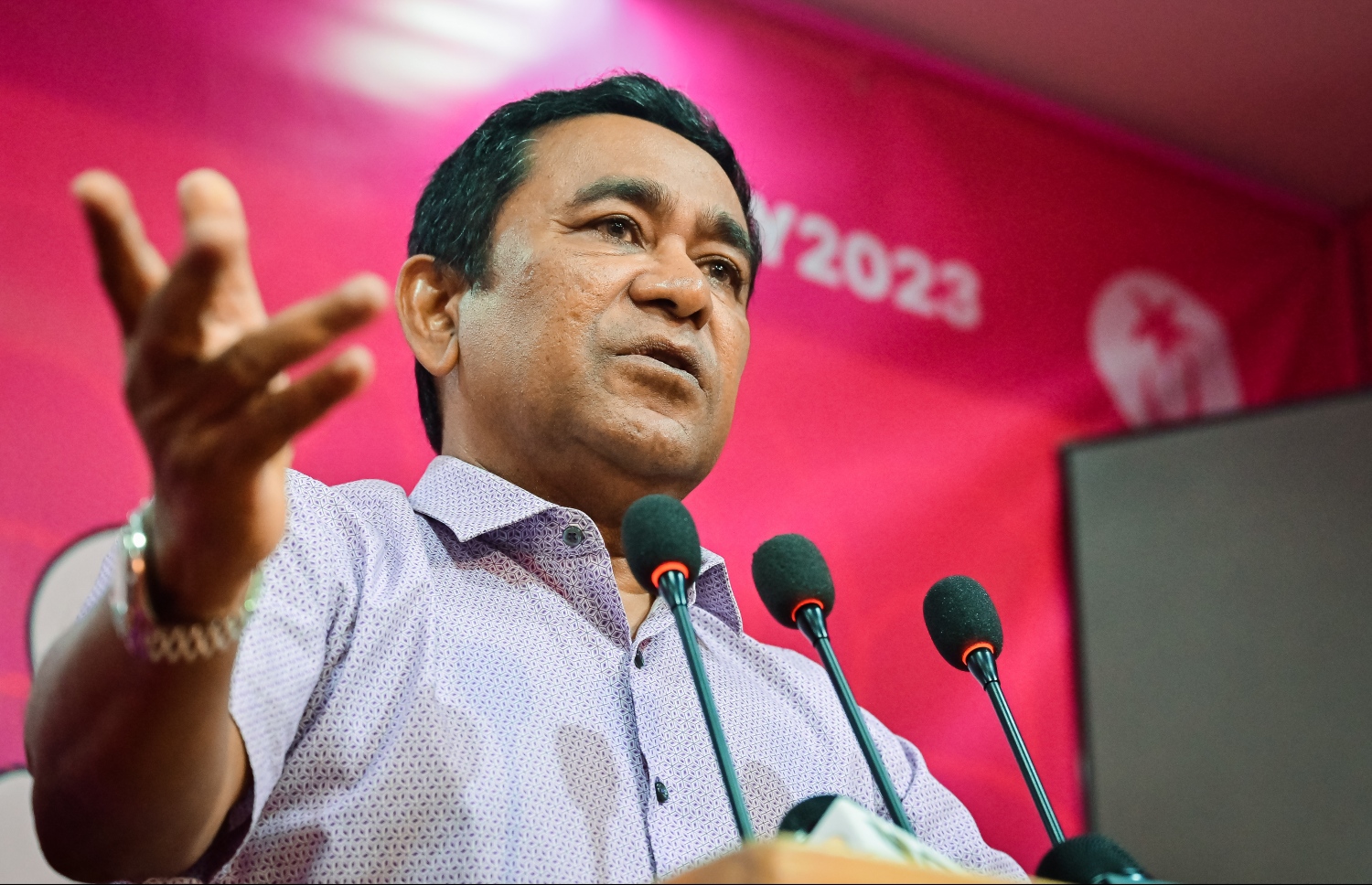
Jameel and other key figures leading the efforts to form Yameen’s PNF said this intervention by the coalition’s leadership was a loud message to Yameen about their disproval of him now. It was a statement urging Yameen to take a step back and allow Muizzu to lead his government.
In reality, Yameen cannot be actively involved in any political activity, especially amongst its leadership, considering the Prisons and Parole Act. Though both PPM and PNC belonged to Yameen, its entire leadership was now part of the new government’s cabinet, making President Muizzu the most politically influential figure in both these parties.
The only hope left for Yameen to pursue his political endeavors was by forming a new political party. Unlike former President Mohamed Nasheed, who after facing bitter defeat at MDP’s primary, went ahead to found The Democrats, Yameen has five long years to openly mount his opposition efforts against the current government.
With all that said, a few things are now vividly clear. The whole feud regarding the “no counsel” erupted after Muizzu did not seek Yameen’s advise in how to run his government, and the president’s decision to appoint his own close confidantes and trusted allies into his cabinet.
The gist of the matter is that the conflict was never about unreturned calls, but rather rooted in political envy and disbelief at Muizzu’s apparent defiance to Yameen’s orders.
